Last Updated on August 16, 2022
Like other pet birds, parrots are also famous and have many species. They have been kept as pets since ancient times. Macaws are one of the parrot species. Can you keep them as pets? What do they eat? How long can they live? What are the different species of macaws?
Macaw is a long-tailed, colorful parrot. It eats fruits, vegetables, seeds, berries, nuts, herbaceous parts, clay licks, and insects. It lives in a flock, breeds once a year, and stays with its mate for life. It is famous as a companion bird with an average life span of 50-60 years.
Let’s discuss the appearance and diet of macaws. How do they behave during the breeding season?
In this article, you can also learn about different species of macaws and their importance for keeping them as pets. In addition, you will inform the lifespan of a macaw.
What Is A Macaw?
It is a long-lived, beautiful, large-sized parrot. Hyacinth macaw is the largest of all macaws species, one meter long with a wingspan of 1.2 meters. They are noisy and highly vocalized. They are intelligent and can mimic human speech.
How Does A Macaw Look Alike?
A macaw looks like a beautiful and big parrot. It has a large, curved, and strong beak specially designed to cut apart the hard shells of nuts. Long-tailed birds with colorful and intense wings can make high flights.
Male looks similar to female macaw, both are equally colorful, and it is tough to differentiate between male and female macaw. There is no scientific method of knowing the difference between male and female macaws except DNA tests.
Depending upon some observations by researchers and pet owners, there is a slight difference in size.
- Male macaws are slightly bigger than female macaws.
- The heads of males are a little bigger than females.
- Females have narrower beaks than male macaws.
How Does A Baby Macaw Look Alike?
When a baby macaw comes out from the egg, it is tiny with no feathers and blind. New hatchling is entirely dependent on its parents to feed and train. After weaning, they can fly and find their food.

When it reaches ten weeks, it is covered with feathers. Feathers of young macaws are less vibrant and smooth, while adults have more colorful and shiny feathers.
Baby macaws have black eyes, but the color changes over time. It turns grey when an adult. At the age of three years, eye color turns yellow.
What Do Macaws Eat?
Fruits, vegetables, seeds, nuts, flowers, leaves of some plants, and berries are macaws’ most liked food items. In some areas, some species lick clays and eat insects. According to research, an average healthy macaw consumes 10-15% of its body weight. It needs balanced food daily for better growth and health.
What Do Macaws Eat in Wild?
Macaws live both in the wild and in captivity. Rainforests are their favorite places where vegetation is typical. They can find a wide range of food items. They eat native seeds, fruits, flowers, buds, nectars, leaves, figs, palms, and nuts in the wild. They are free to move around and entirely independent to take the food of their own choice.
Macaws need a nutritious diet that contains vitamins, minerals, and all essential nutrients in proper amounts. Wild parrots need more fat content in their diet because of their body requirement. They tend to fly the whole day searching for food, nesting, and roosting and rearing chicks. So, they need more energy to fulfill their daily tasks efficiently.
Foraging is a natural behavior and reasonable exercise of macaws that are lacking in captivity. Wild parrots have the opportunity to fly where they want and search for food. Some species of macaws lick clays because they take high flights and access to the clay licks.
Macaws eat insects too in their natural environment. Insects are a rich source of protein, so you add them occasionally.
Macaws are natural dispersal agents of seeds. They carry the seeds of different trees from the mother plant and drop them on forests’ floors, resulting in the new growth of different plants.
What Do Macaws Eat in Captivity?
In captivity, macaws are dependent on their owner or caretaker for their food. Macaws like the same food as they like in the wild. They need a balanced diet for proper growth and health.

You should offer an adequate amount of fresh fruits and vegetables to your macaw daily. It is better to give them synthetic food like pellets that are easily and balanced in the market.
Seeds
Seeds are rich in fats. These should not be the entire food but should be part of their daily diet instead. They alone can not fulfill the body requirement of macaw if taken in high quantities. The number of fat increases than usual and leads to obesity.
Seeds contain fats but are deficient in vitamin A and calcium. Both are necessary for sharp vision and strong immunity. You can offer some seeds like peanuts and sunflowers along with their routine diet for better results.
Fruits and vegetables
Fresh fruits and vegetables are a rich source of energy, sugar, carbohydrates, minerals, and vitamins. They also contain a good amount of water suitable for the proper absorption of food. Fruits and vegetables are beneficial for the following reasons.
- Strong bones
- Healthy immune system
- Strong muscles
- Shiny feathers
- Better respiration
- Lower risk of heart diseases
- Proper growth
Offer fresh fruits and vegetables after washing to prevent diseases.
Pellets
Pellets are prepared artificially for the parrots, including macaws. These are nutritious, containing the proper amount of all nutrients required for a healthy macaw. Macaws like to eat synthetic food like Nutri-berries and pellet-berries.
Pellets are a good source of a balanced diet for captive birds. They are available in different colors, flavors, and shapes. It is good to offer pellets to hand-raised macaws to avoid extra feeding of seeds.
Water
Water is a naturally occurring food item that every organism takes to live and to stay healthy. It regulates the body systems and maintains good health. It is also a good source of minerals.

Do macaws like human food?
Macaws are omnivores and can eat everything which a human eats. They can eat dried fruits and vegetables. Dried fruits have more amount of sugar than fresh fruits. If necessary, give a small number of dried fruits occasionally.
They can eat cooked foods like fish, meat, eggs, and rice. Do not rely on cooked food only. Give it as a part of your macaw’s diet. Fresh fruit juice is also suitable for macaws. Avoid giving junk food and chocolates because of their harmful effects on health.
How Long Do Macaws Live?
In general, macaws can live up to 60 years in captive conditions. The lifespan of a macaw depends upon the species, the place where they live, and the care the owner gives them. The average life of a macaw is 50 years in its natural environment. They live longer in captivity than in the wild because of better care, housing, and nutrition.
Larger species of macaws live a relatively long life, while smaller macaw species live shorter. Hyacinth macaw is a giant macaw whose lifespan is about 50 years, while the Hahn’s macaw is smaller, so its life cycle is 30 years.
What are the factors affecting the lifespan of macaws in the wild?
Larger the parrot, the longer its lifespan. The Hyacinth Macaw is one of the largest and can live up to 70 years. Hahns macaws are smaller, so they live for 30 years in the wild. Their life span of macaw in the wild is affected by
- Predator attack
- Illegal capturing of pets
- Loss of habitat
- Deforestation,
- Lack of hunting area.
All these threats may contribute towards the shorter lifespan of macaws. Their life span is longer in captivity because of proper care and attention, appropriate cage size, balanced diet, adequate ventilation, medical care, and vaccination.
Why do they live long in captivity?
The lifespan of any macaw is greatly influenced by the place where they live. In captivity, they receive proper care and attention, a balanced diet, medical care, adequate vaccination, and a suitable place for playing.
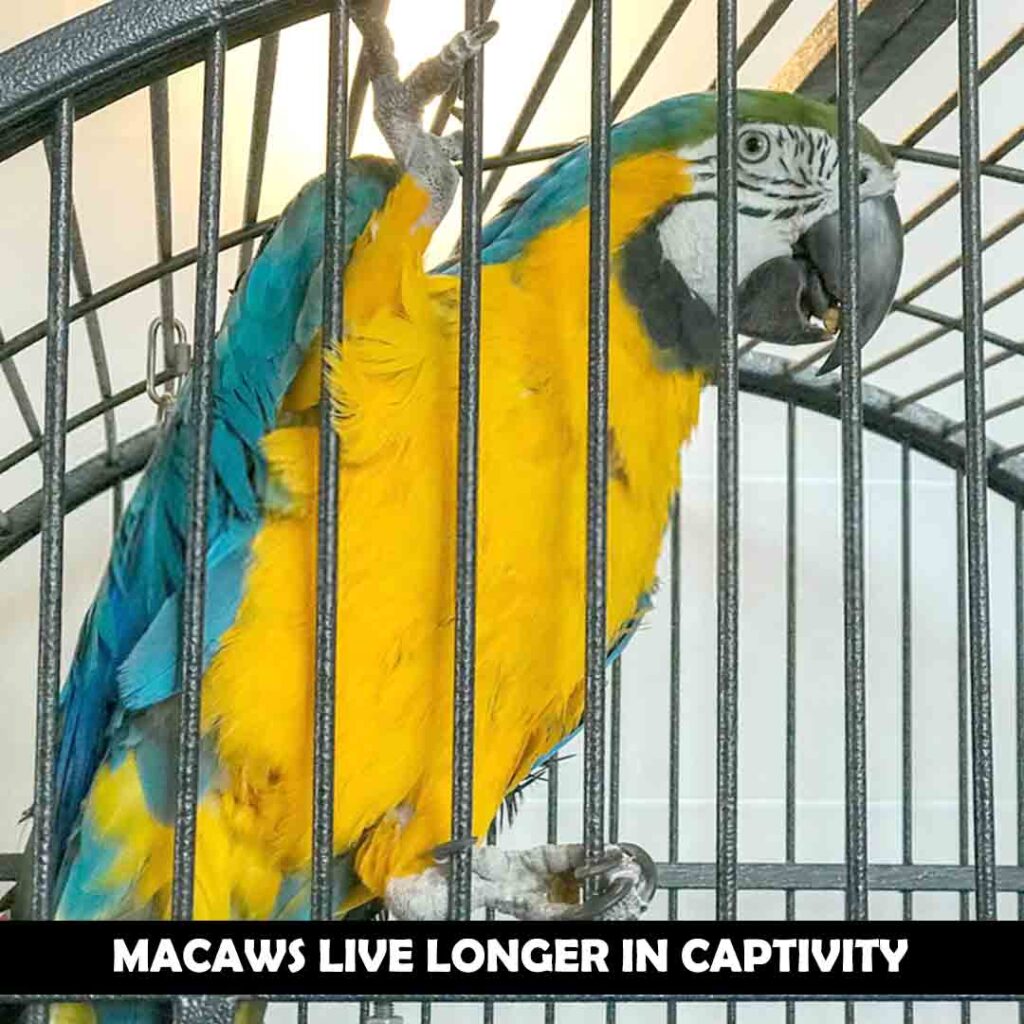
Nutrition
The most crucial factor that influences the lifespan of a macaw is its nutrition. According to the body requirements of macaws, they need a balanced diet containing essential nutrients, vitamins, minerals, and energy. Macaws eat fruits, vegetables, seeds, nuts, and herbaceous parts of some plants. So if you are adding a macaw to your pet family, keep giving a nutritious meal. It must be full of energy.
Adding some supplements with regular meals gives a lot of energy to your pet. Pellets are available in the market which are rich sources of proteins and vitamins.
Housing
Housing is also one of the factors that influence the lifespan of a macaw. Cage size should be suitable according to the size of your macaw. If it is not appropriate, your pet does not move around freely, so get depressed. Macaws should have plenty of space to play in the cage.
Proper Ventilation and Sunlight
Macaws breathe freely into the fresh air and enjoy the sunlight whenever they need it in the wild. Similarly, they need fresh air and sunlight for their proper growth in captivity.

Fresh air with proper ventilation will save your macaw from many respiratory issues. Sunlight is necessary for better bone development. Bones play an essential role in the flight of all birds. Lack of sun makes your pet depressed and has weak bones.
Medical Care
As you know, the macaws are very active and interactive birds; they love socialization. In the wild, they have developed immunity against natural hazards like climatic changes or predator attacks. Sometimes, larger birds prey on them for their survival. Many species are near to extinction because of these threats. They are not provided with medical facilities in case of severe injury or infectious disease.
In captivity, macaws can survive more because they enjoy medical care when they need it. They are very playful and often get injured when they fly into windows, fans, or walls.
Proper vaccination against different diseases and the availability of a vet for treating sudden injuries can make their lifespan longer in captivity.
Breeding Behavior of Macaws:
The breeding season arrives in spring. Female macaws lay eggs in nests. Nests are found high in tall trees in the cavities. Female lays eggs in clutches (1-2 eggs). It starts laying eggs at the age of 2 years, depending upon the species. For example, blue and gold macaws lay eggs when they reach three years.
Macaws are good companions and mates for life. They are not only responsible for mating but also share food with their mates and enjoy life together. Macaws usually breed once a year, depending upon the species. Blue and gold macaws reproduce about every 1-2 years.
During the breeding season, mothers incubate eggs while fathers hunt food. They stay together until hatching occurs. After hatching, the baby macaws are too small and dependent on their parents to feed. Parents give proper care to their hatchlings until weaning.
Factors That Can Affect Macaw Breeding
Macaws are very social and interactive. Sometimes, they bond closely with their owners. During the breeding season, they tend to stay with their owner and show more affection and love to the owner, considering them their mate.
A human-bonded macaw squawks and tends to bite the person coming to it or interacting with the owner. Over-bonding can be reduced through training.
During the breeding season, most macaws get aggressive because they are not sexually satisfied. When they fail to find their potential mates, they become aggressive. Ultimately, they become ill and fail to breed well.
How To Breed A Macaw In Captivity?
Breeding a macaw in captivity is not an easy practice. Only an experienced owner/ breeder can do this with great care. A breeder should have enough time and money to proceed with this breeding. If you have decided to breed a macaw, then you must follow the following tips.
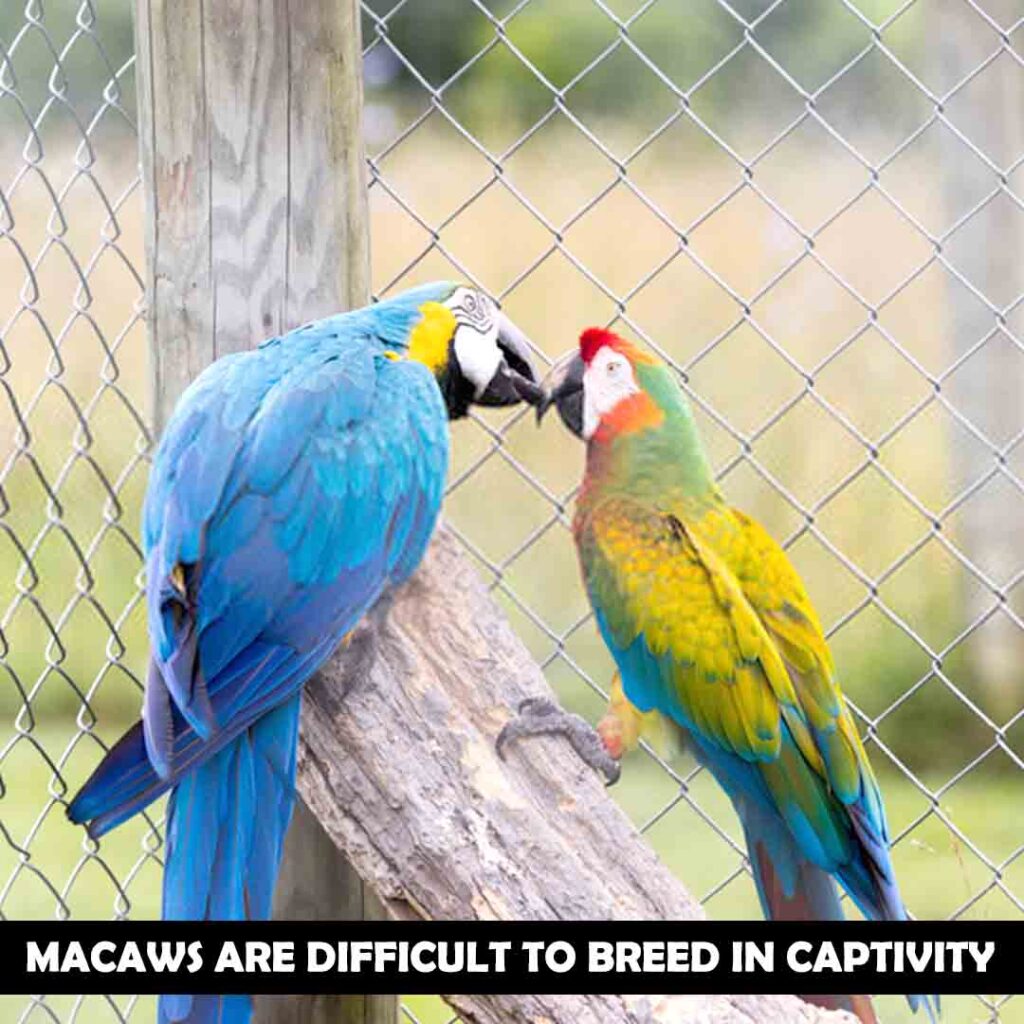
- Only mature, healthy, and well-fed macaws are suitable for breeding.
- The cage must be suitable for a macaw. If you breed a blue and gold macaw, you will need a big pen because of its enormous size.
- Provide enough space inside the cage. Being very friendly, make bonds with their owner and need plenty of time to spend with them.
- The cage and nest box must be clean.
- Must ensure free access to water.
- Toys should be there in cages. Some macaws show aggressive behavior during the breeding season. These toys will help to keep them busy.
- Proper care during incubation and care of chicks is another task that an experienced person can only maintain.
- Usually, parents care for their babies, but some parents are new and can not do this. In this situation, only experienced breeders take care of the chicks.
Are Macaws Good Pets?
Macaws are very popular as pets because of their prominent characteristics such as colorful, attractive appearance, friendly relationship with humans, Long lifespan, source of happiness as they interact, mimic, and follow the words. They are Intelligent birds and make good companions.
Despite that, they are noisy and vocalized and need plenty of space and attention from the owners. If you have enough space and time to spend with your pet, the macaw will be a good choice.
What If You Have Decided To Pet A Macaw?
When you decide to pet a macaw, you should keep some points in mind before buying.
Your Personality
Macaws are very demanding, noisy, and messy parrots. They are good pets but are very challenging. If you are cool-tempered and have enough time to spend with your macaw, then go for it.
If you are short-tempered, it will be challenging to maintain the pet area in good condition. Hitting your macaw can lead to stress or aggressiveness in some species. Friendly and calm behavior can minimize the risk of destruction as a result of hostility.
Expenses
It is good to see your pocket whether you can bear the expenses of macaws or not. These are very expensive birds because of their popularity as a pet, beauty, and rarity of some species. The average price of blue and gold macaws is $1350, while the cost of smaller macaws is $850. It is good to start with a macaw pet. If you can bear all the expenses of macaws, that includes buying cost, cost of a cage, feeding cost, daily maintenance cost, and the cost of toys.

Proper Place And Time
Macaw species are of different sizes, and they need different sizes of cages. Larger macaws require a large cage, while smaller ones will need a small cell. The non-availability of a proper place makes them stressed.
Macaws are very interactive and fun-loving. They need time from their owner to interact with them. Playing with toys not only soothes their desire of chewing but makes them active and healthy.
Experience
Handling a macaw pet is not as simple. Only an experienced owner can do this as a challenge. If you are new, it would be difficult to hold a macaw. Macaws are routine-oriented. That’s why they need an experienced caretaker who can maintain their feeding routine, playtime, manage the behavior of pets during breeding, rearing chicks, and train the macaw for talking or any other desired action.
How To Look After Your Macaws?
After introducing your pet to your family, the next step is to take care of that pet. Here are some tips to follow for better care of your pet.
- Give a sufficient amount of time to help your macaw to get acclimatized as soon as possible. It would be possible by dedicating yourself to your pet. A macaw usually needs 8 hrs a day of attention from its owner.
- Regular cleaning of cages is suitable for your pet’s health. Macaws are very messy if cleaning is not done once a week. Your pet may suffer from diseases due to the accumulation of wastes of food or drooping of birds.
- Allow your bird enough space for playing and interacting with other birds also. A good size cage with 5 x 6 x 3 ft dimensions is better for all species of macaws.
- Your macaw needs a bath after every 2-3 days.
- Macaws are affectionate and make bonds with their owners. They become depressed if you leave it alone or with some other person. They are routine-oriented, so follow the routine and see your macaw at the same time every day. It is better to avoid bonding with your pet. Because it would be tough for you to leave your macaw even if you have a genuine reason, it will be more aggressive or stressed, and skipping meals results in bad health.
- With great care and training, your macaws become more loyal and affectionate. They love to play and stay with you always.
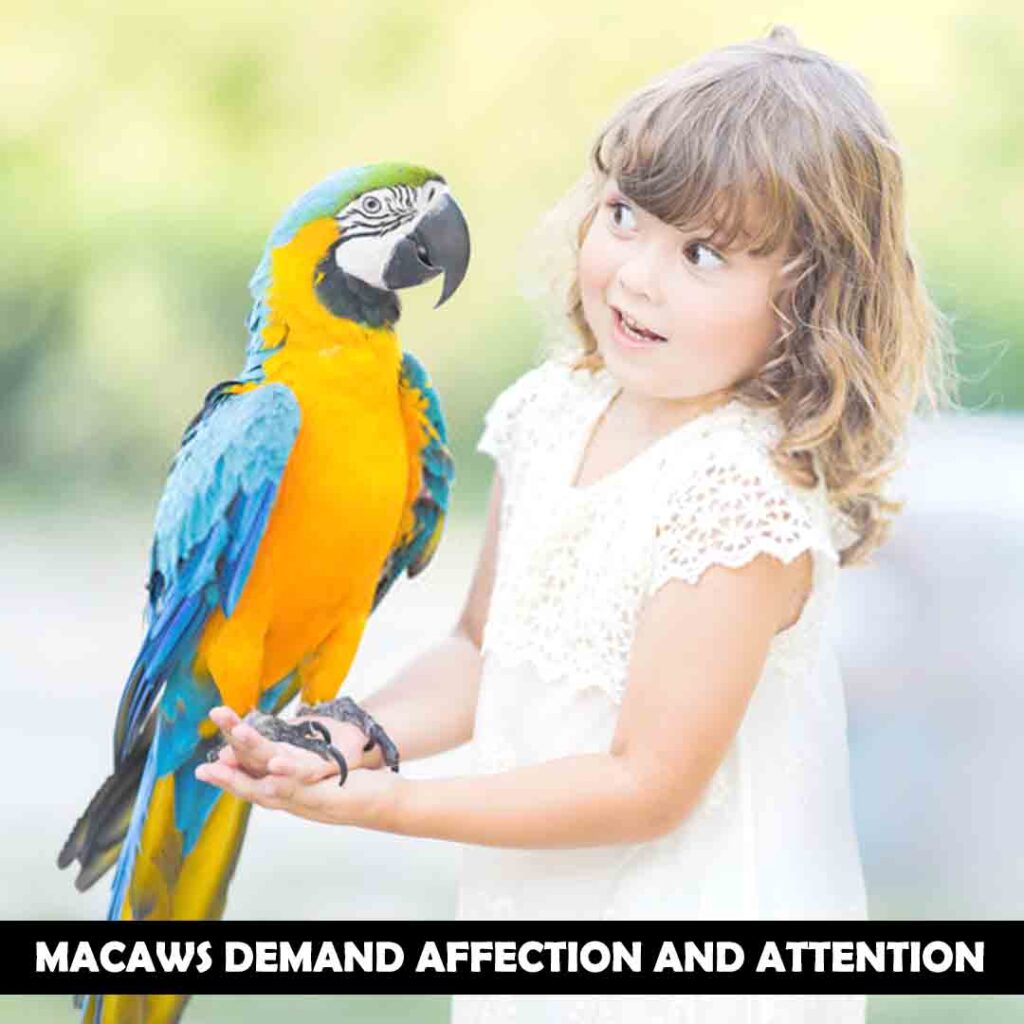
Macaw Species Which Are Good Pets
Macaws are good pets for an experienced owner. There are about 17 species of macaws. Few of them are extinct. Some species like hyacinth macaw, red-fronted macaw, and blue-throated macaws are now endangered because of the illegal pet trade and deforestation by human influence. Some of the species which are proved as good pets are given below.
Blue and Gold Macaw
They are large long-tailed with blue feathers and yellow underparts. Its beak is black and curved. They are popular pets because of their appearance, talking ability, easy availability in the marketplace, and close bonding to humans. They are long-lived and can stay alive up to 65-70 years. The cost of blue and gold macaw is
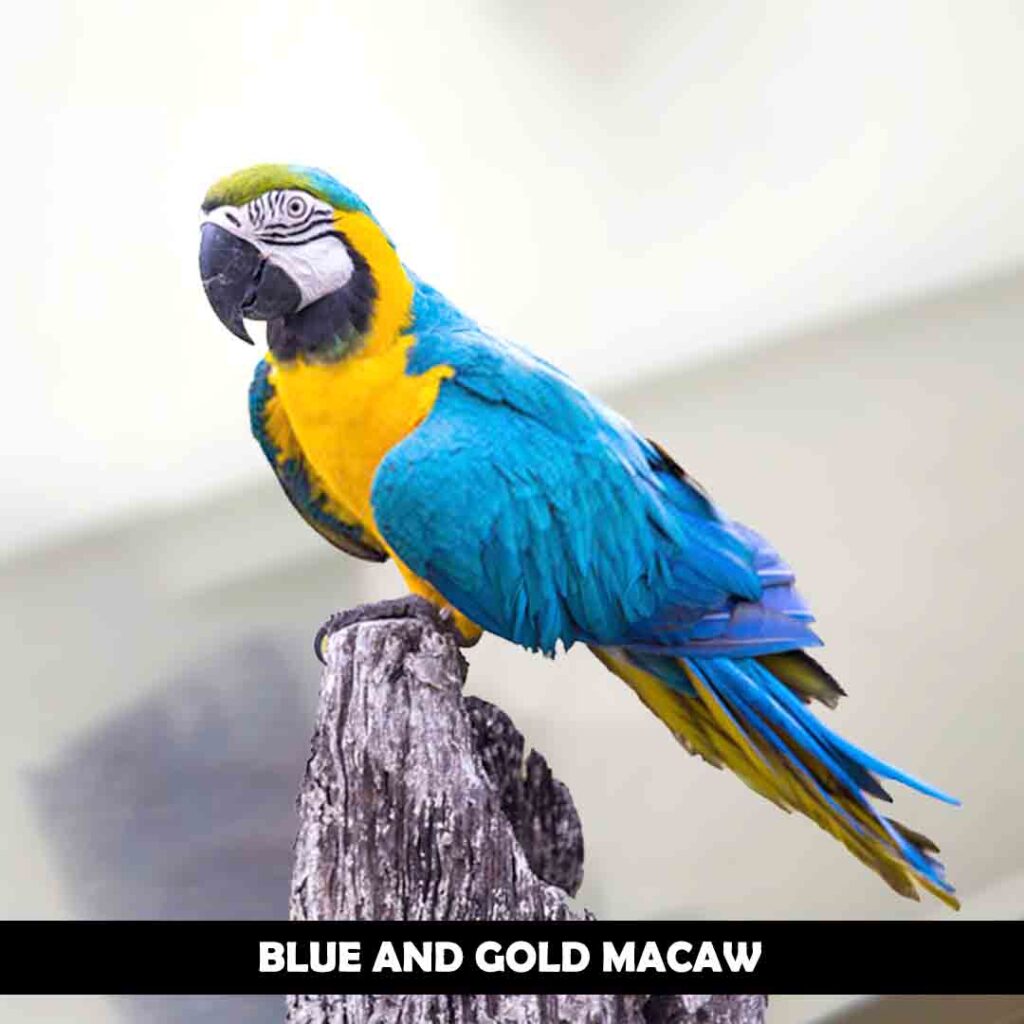
Green-Winged Macaw
They are long-lived and significantly large, with green feathers and cherry red body and head. Beaks are dark and curved. They are also good pets and need a lot of interaction. The cost of a green-winged macaw is $3000-4000. They can live up to 70 years
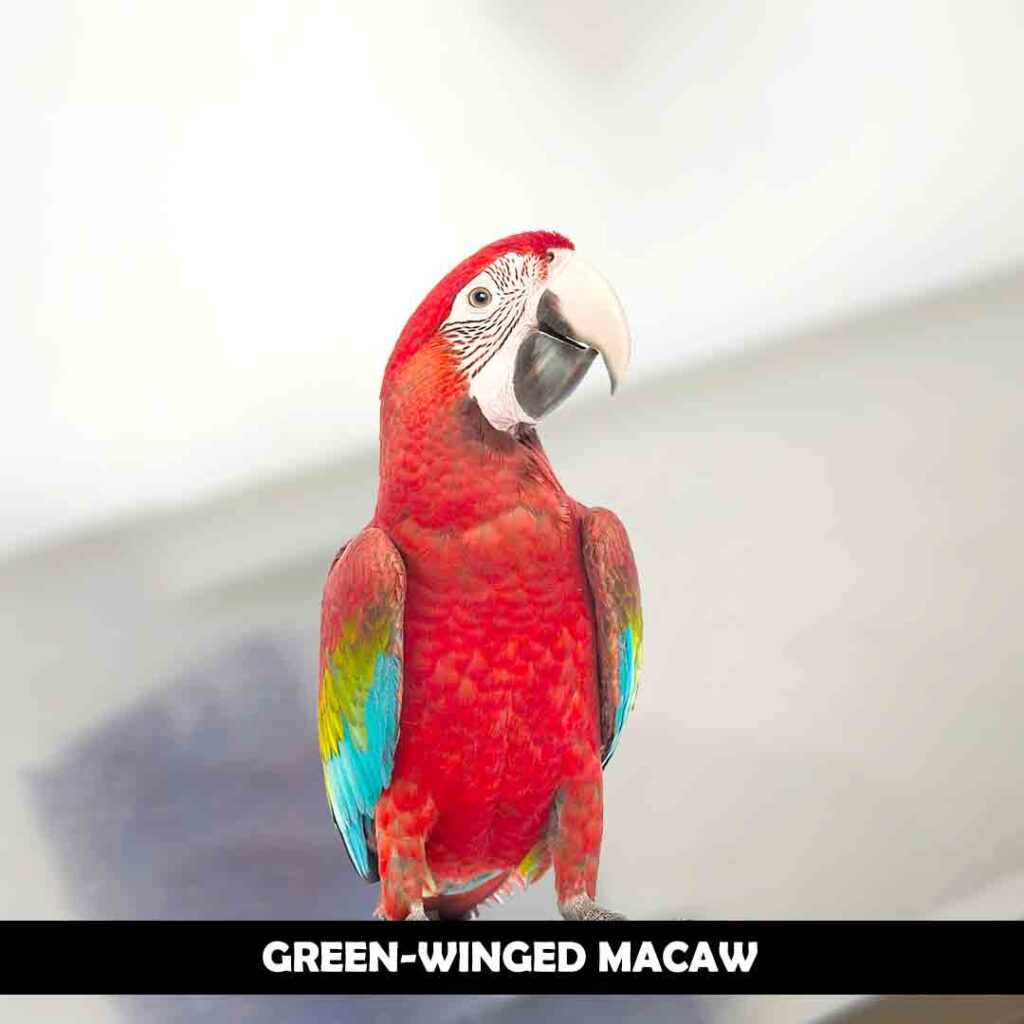
Hahn’s macaw
They are smaller in size and known as mini macaws. If taken as pets, they are good talkers and show love and become companions. They live up to the age of 30 years. Its price ranges from $800- $2000.
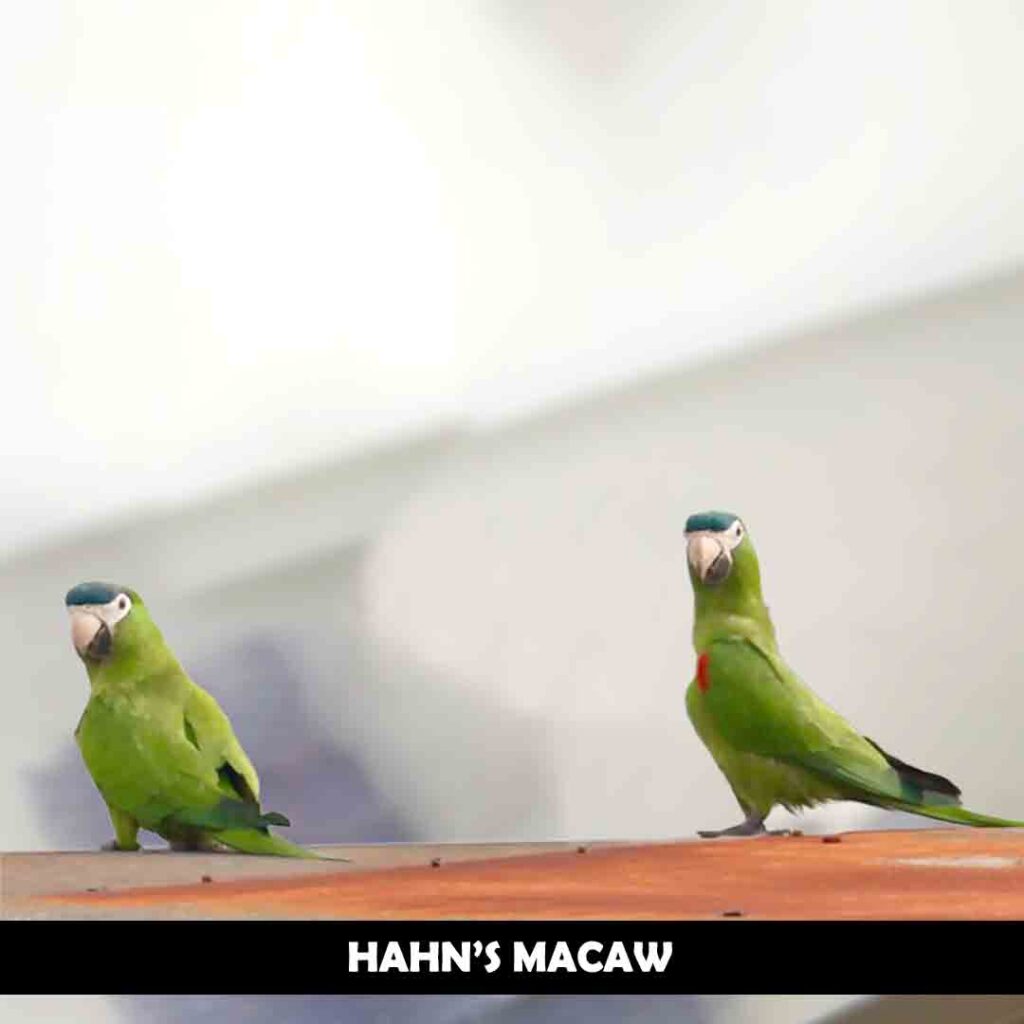
Hyacinth macaw
Hyacinth macaws are very friendly and beautiful which can live up to 60 years in captivity. They are very affectionate and develop close bonds with their owner.s They are very costly because of their rarity. It is expensive most macaw, and its price is between $5000- $ 12000.
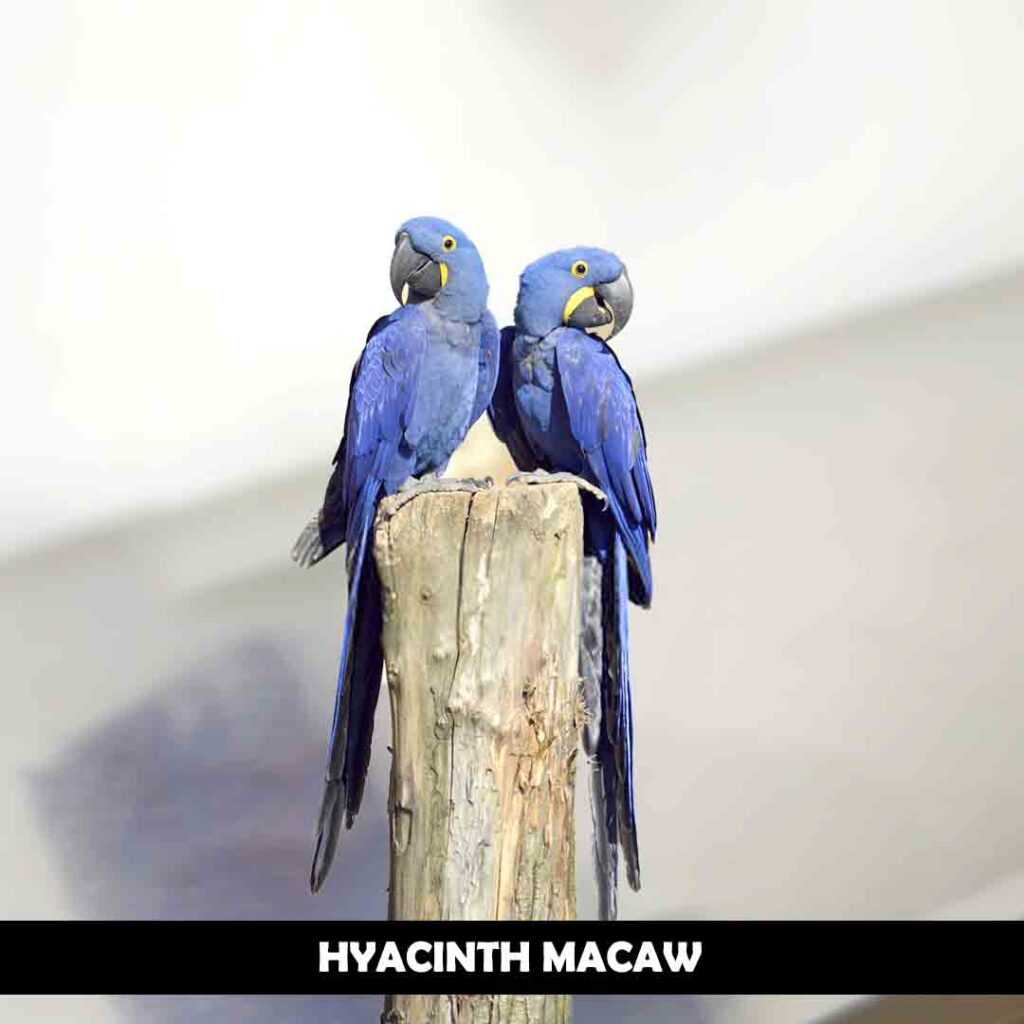
Hybrid Macaw
It is costly with an average price of $3000. It is considered a good pet if provided with proper space and a lot of time to interact. It can live up to 50 years. It is a massive bird with variable colors.

Illiger’s Macaw
They are good pets and need constant mental stimulation. Being very social, they are bonded with their caretakers. Its price ranges between $1000-$3000. It stays alive for up to 60 years.

Military Macaw
A medium-sized, very social, highly vocalized, and even-tempered parrot can be a good pet. The average lifespan of a military macaw is 50 years. You can buy it for $2500.
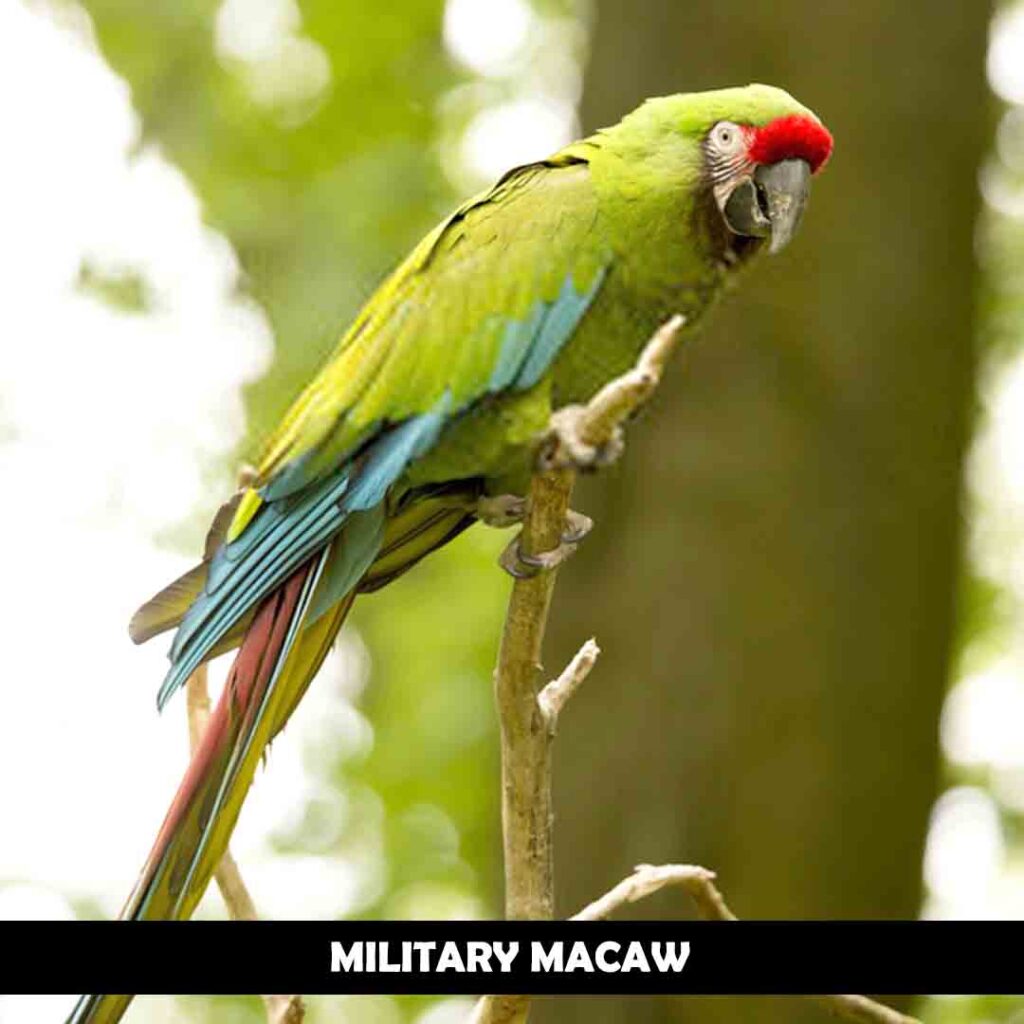
Scarlet macaw
It is highly active and friendly and can live upto 75 years. It can live along with other parrots in harmony. It is very costly because of its rarity and high demand in the market. Its price is $2500.
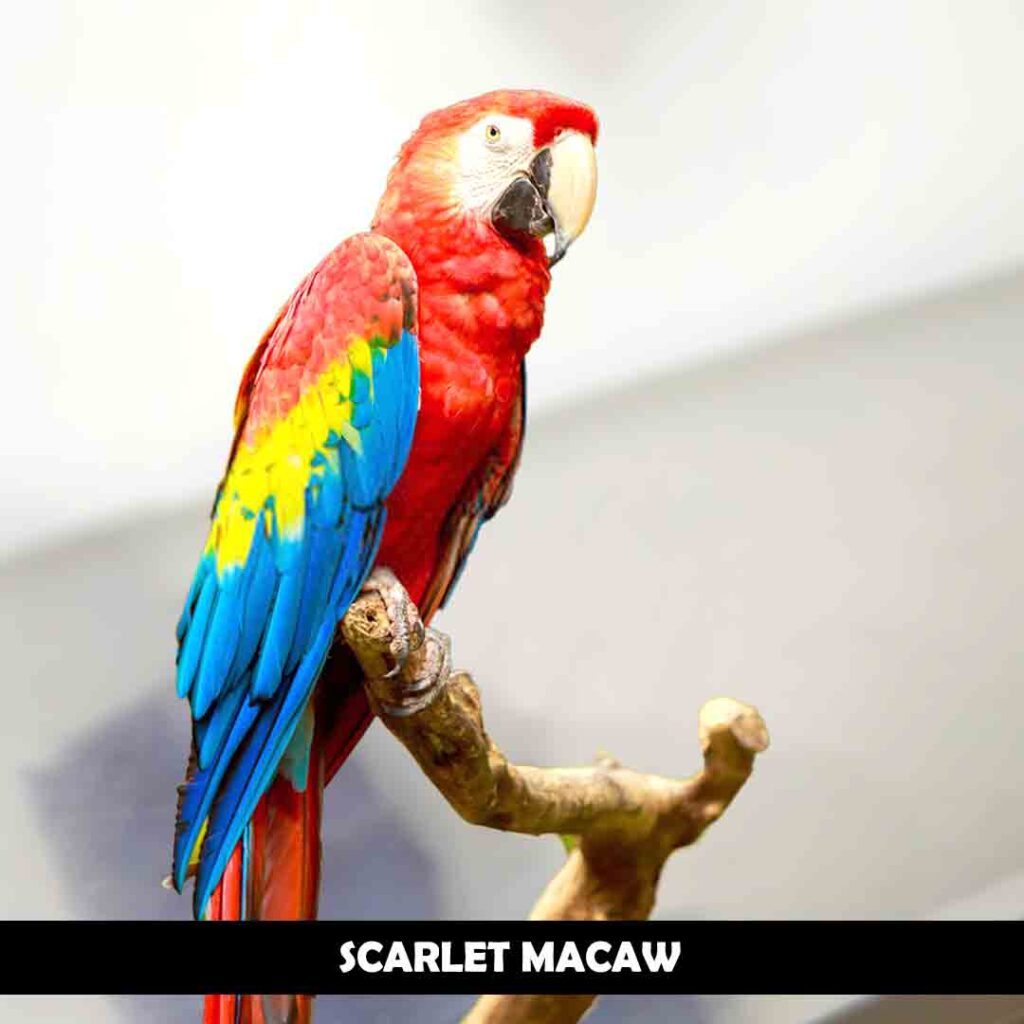
Severe macaw or Chestnut-fronted macaw
They are known as good companions and best talkers. Their body is green with darker beaks. The price of a severe macaw is $2000. Their lifespan is about 30 years.
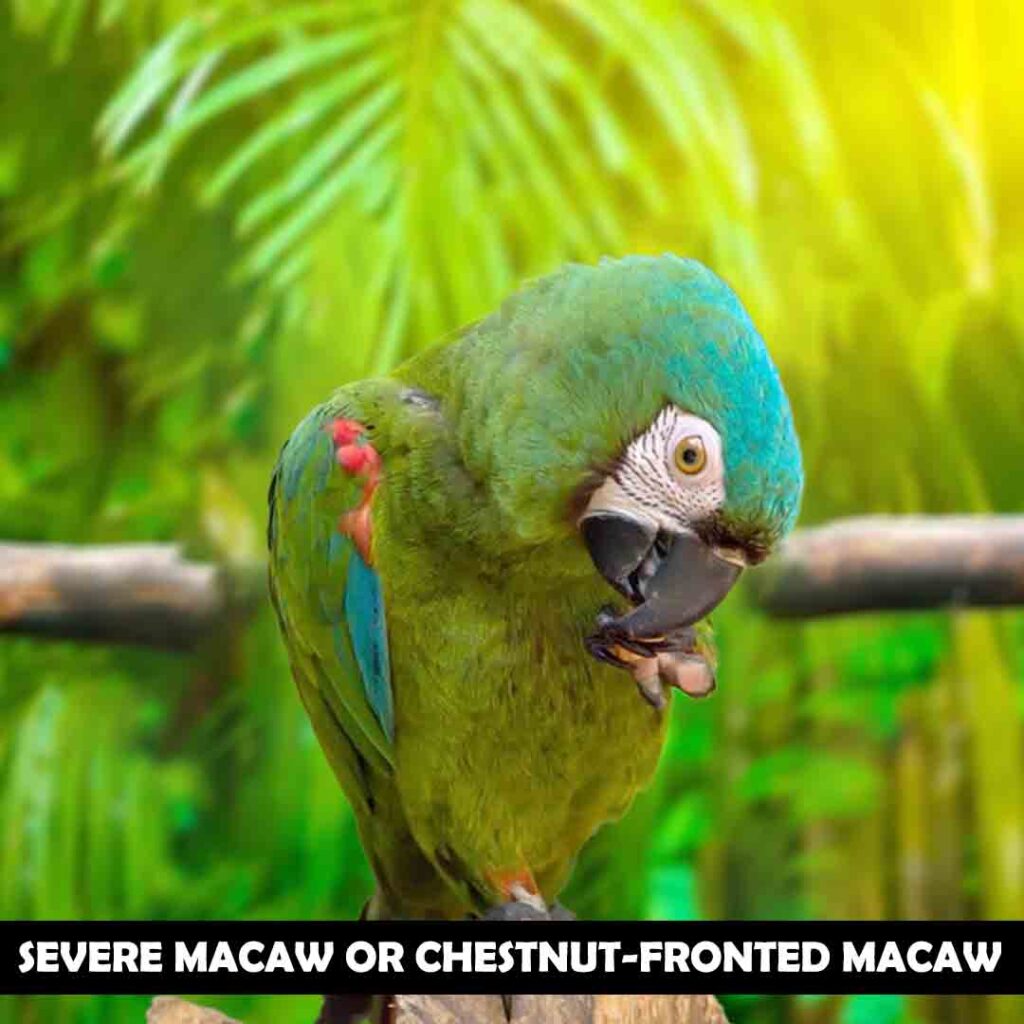
Yellow-Collared Macaw
They are curious and tricky, so it is good to keep them in a safe cage. Green bodies with yellow stripes on their necks look very beautiful. Their beaks are black and faded at the tips. Its price is $1500- $2500. They can live up to 55 years.
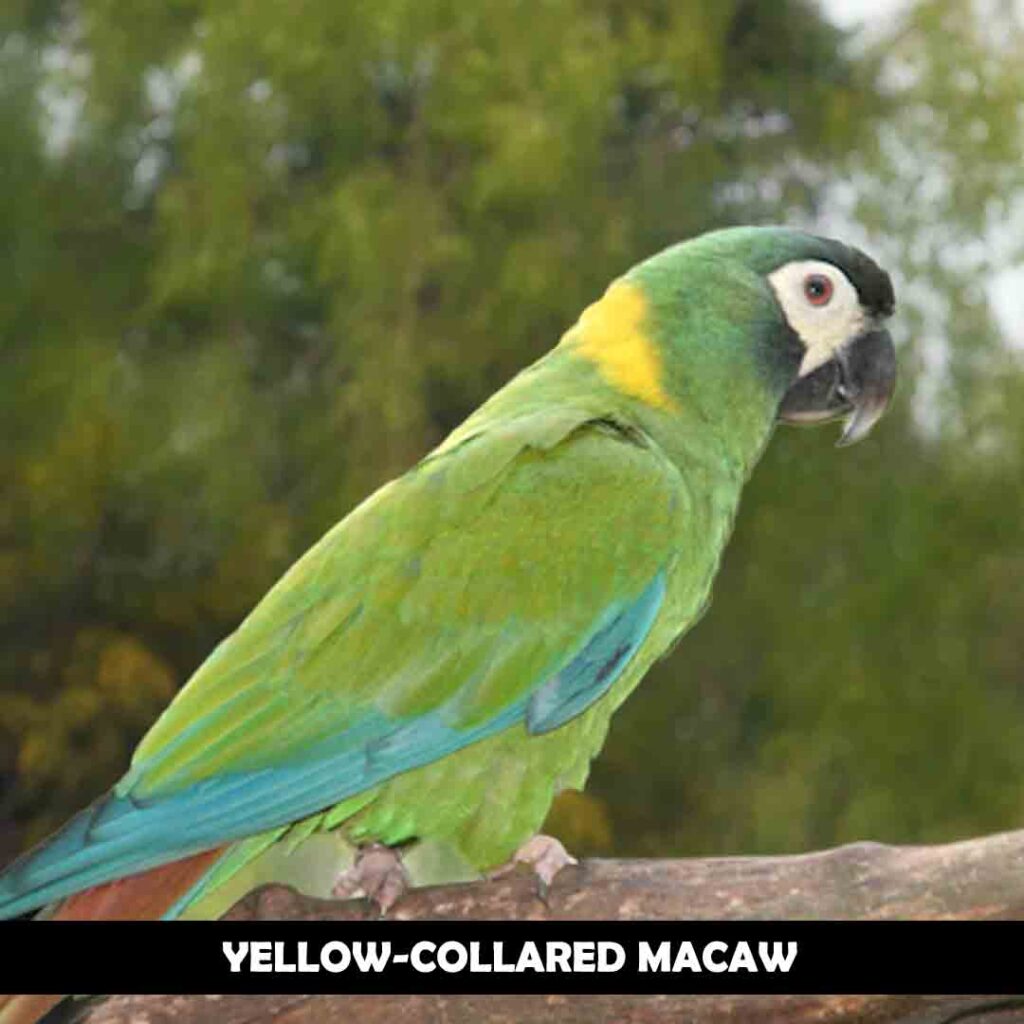
Conclusion
Hence, macaws are good pets if provided with a suitable cage, proper attention, a balanced diet, and a devoted owner. Because of their vibrant colors and friendly behavior, they are preferred as pet birds. They are affectionate and proved to be good companions. They live longer in captivity than their natural environment due to several threats of illegal capturing of birds, deforestation, habitat loss, and degradation.
Also Read About: How Much Does a Macaw Cost?
Bilal is an aviculturist who loves to write in free time. His personal experience with bird care and breeding enables him to share valuable tips. So far, he has contributed more than 100 blogs to this site.
His goal is to promote bird-keeping and save endangered species.

why my 25 y.o. golden blue macaw all of a sudden quit eating her food, but drinks a lot of water and after couple of minutes vomits the water which she just drank. what can it be? Please help?
Angelina
my email is>123roxybaby777@gmail.com
Probably it ate something that has caused stomach inflammation. Immediately take it to a VET for a detailed checkup.
Probably he ate something like garlic/onion that is causing inflammation. What are you feeding him these days?